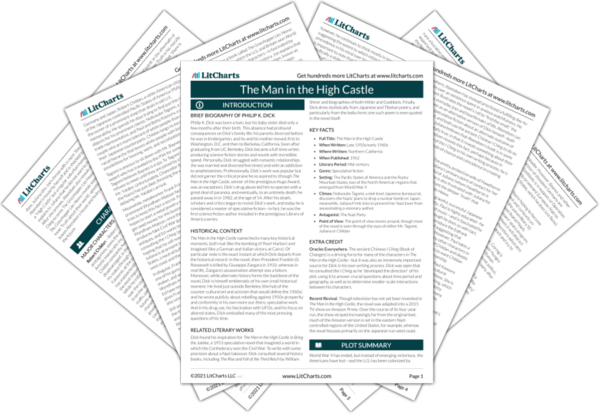Previous
Chapter 1
|
Previous
Chapter 1
|
The Man in the High Castle: Chapter 2 Summary & Analysis |
Next
Chapter 3
|


Upgrade to unlock the analysis and theme tracking for all of The Man in the High CastleThe Man in the High Castle!
Get LitCharts A+